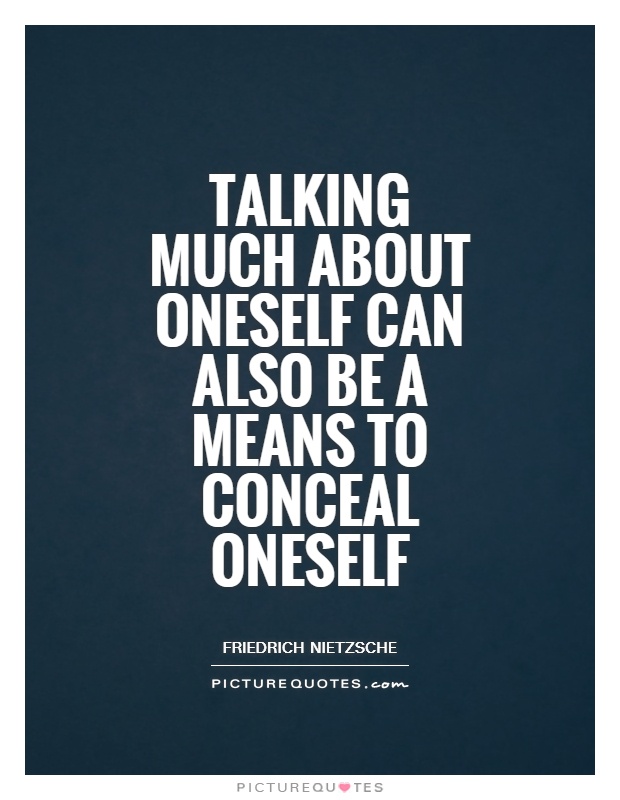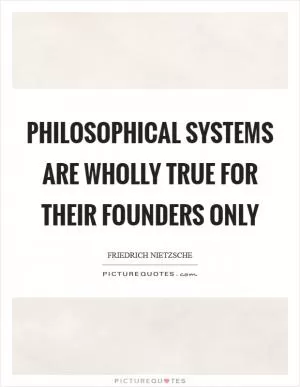Talking much about oneself can also be a means to conceal oneself

Talking much about oneself can also be a means to conceal oneself
Friedrich Nietzsche, the renowned German philosopher, is often associated with the idea of self-concealment through excessive self-expression. In his works, Nietzsche delves into the complexities of human nature and the ways in which individuals navigate their identities in a world that often demands conformity and self-restraint. One of his most famous quotes, "Talking much about oneself can also be a means to conceal oneself," speaks to the paradoxical nature of self-disclosure and self-concealment.Nietzsche believed that individuals often use self-expression as a way to mask their true selves and project a carefully curated image to the world. By talking incessantly about oneself, one can create a facade that distracts others from seeing the vulnerabilities and insecurities that lie beneath the surface. In this sense, self-disclosure becomes a form of self-preservation, a way to protect oneself from the judgment and scrutiny of others.
However, Nietzsche also recognized the dangers of excessive self-expression. He believed that true authenticity and self-discovery could only be achieved through introspection and self-reflection, rather than through external validation or approval. In his view, those who constantly talk about themselves are often seeking validation and affirmation from others, rather than engaging in genuine self-exploration.
Furthermore, Nietzsche argued that self-concealment through self-expression can lead to a sense of alienation and disconnection from one's true self. By constantly projecting a false image to the world, individuals risk losing touch with their authentic selves and becoming trapped in a cycle of self-deception.












 Friendship Quotes
Friendship Quotes Love Quotes
Love Quotes Life Quotes
Life Quotes Funny Quotes
Funny Quotes Motivational Quotes
Motivational Quotes Inspirational Quotes
Inspirational Quotes